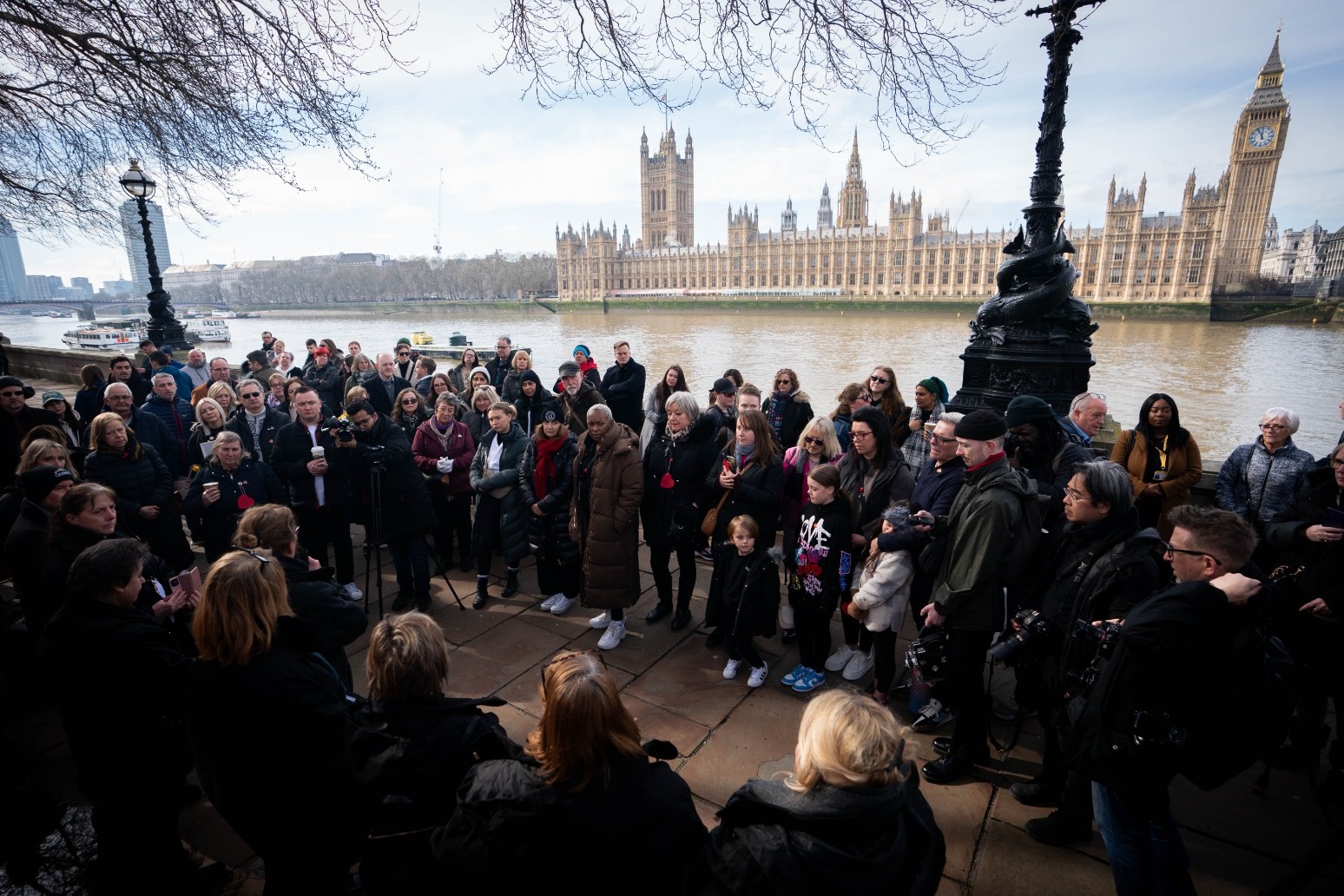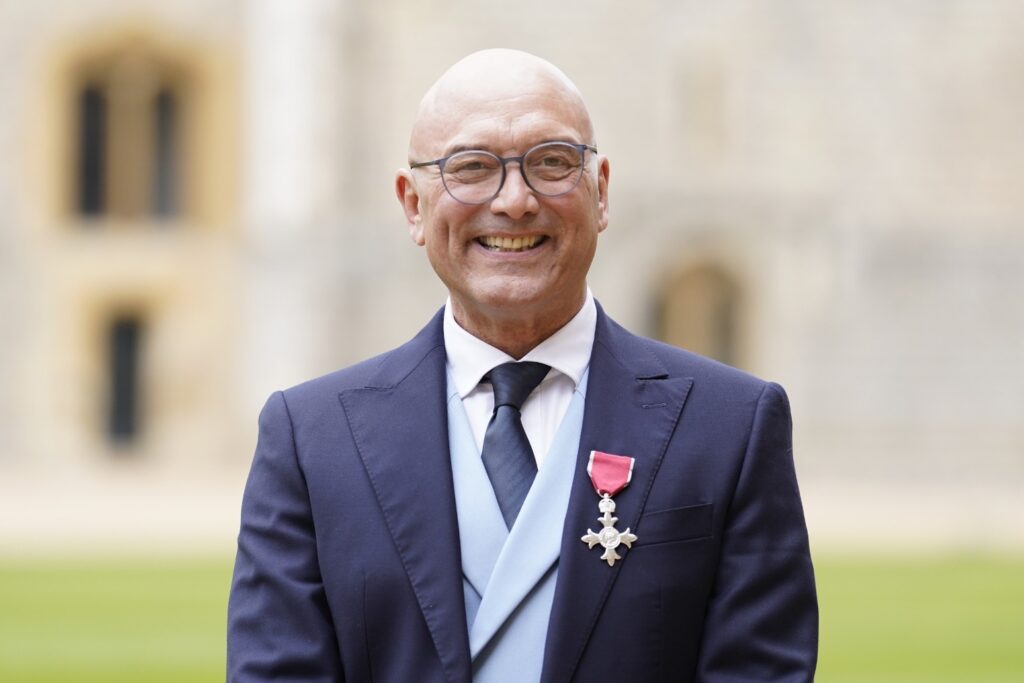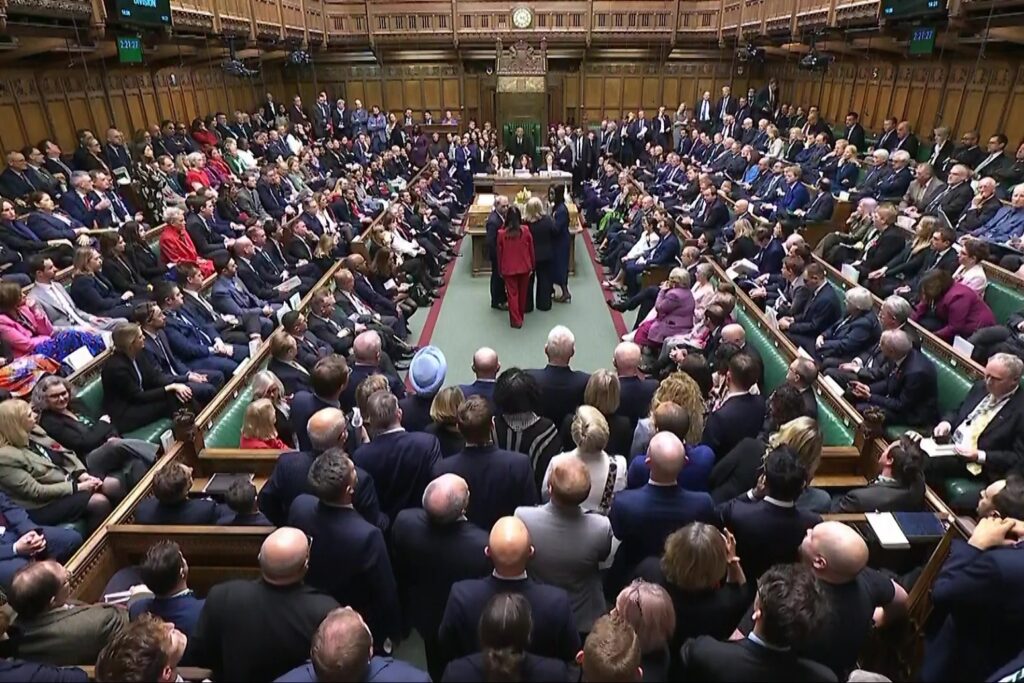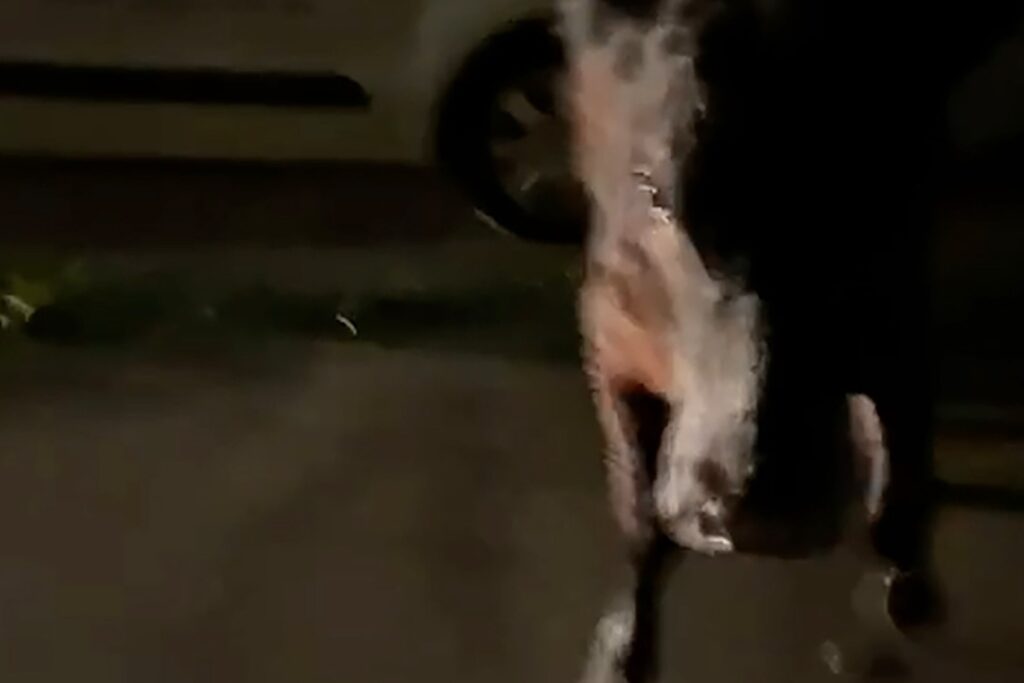This website uses cookies so that we can provide you with the best user experience possible. Cookie information is stored in your browser and performs functions such as recognising you when you return to our website and helping our team to understand which sections of the website you find most interesting and useful.
Minutes silence on National Day of Reflection
03/03/2024

The lives lost to Covid-19 have been commemorated
The lives lost to Covid-19 have been commemorated by a minute’s silence on the first official National Day of Reflection.
Volunteers for the National Covid Memorial Wall on London’s South Bank were joined at noon on Sunday by the British public at the stretch of hand-painted hearts between Westminster Bridge and Lambeth Bridge.
A group of 10 volunteers relies on public donations to maintain the public memorial, but fear that without Government recognition the wall’s permanence is under threat.
For the Day of Reflection, volunteers strung heart-shaped lights along the 500 metres of the wall and placed a bouquet of flowers at each of its 25 panels.
Lynn Jones, 71, from Stoke-on-Trent, is a volunteer who lost her husband to Covid and now travels 150 miles every Friday to help maintain the wall.
“There is nobody else acknowledging the pain of Covid. Therefore when I come here there are other people who understand,” she said, adding: “People just want to forget it and wash it away. We can never wash it away. We lost our husbands.
“For us, it is a place of comfort for each other. We just want the Government to recognise it, acknowledge it, and protect it so that it is permanent.
“The Government has still taken no action. I think they just hope it will fade.”
Lorelai King, 70, from central London, who also lost her husband to Covid, said the wall is “here by the grace of 10 volunteers” and emphasised the need to protect the memorial.
“It is not hurt that we feel, it’s rage. And people mistake that. We are not weeping puddles of grief, we are enraged,” she said.
“The individuals on this wall, many families here have no grave, they weren’t able to have a funeral.
“They have no marker for their loved one. And they say this is his or her memorial. This is their grave. And he or she is together with all these other people, and it gives them comfort.”
The group collects dedications from social media channels and writes them on to hearts for the bereaved.
Fran Hall, 63, a volunteer from Buckinghamshire, who also lost her husband to Covid, praised private companies for supporting the wall, such as Valspar providing paint and Sharpie donating pens, but believes the Government should have gone further.
“We are deeply disappointed that this isn’t being publicised properly. It has not been announced by the Prime Minister. It is not being led by leading public figures, like the royal family or high-profile politicians,” she said.
“I think as a society there is a natural urge to forget the horrors. But we can’t forget. And I think it is incumbent on the Government to lead the remembering.
“If we did not come every week, there would be no wall.
“Nothing can be done to bring back our husbands but God help it if more people go through what we have gone through. For the lack of responsibility of the people in charge, the people across the river.
“This is why the location of this wall is so important because we know they have to see it. And it’s a reminder.”
It is the fourth day of reflection but the first to take place on the date recommended by the UK Commission on Covid Commemoration – the first Sunday of March.
The group is also responsible for updating the number of Covid deaths, which is displayed at the Westminster end of the wall and on Sunday read 237,114.
Matthew Reed, chief executive of Marie Curie, said the end-of-life charity had acted on strong public demand for the creation of a Day of Reflection.
He said: “We thought there was a real need to bring people together so they could express some of the shared experience of grief during the pandemic period, but also the very deeply personal, unique grief. We have found there has been a very strong public need for it.
“There is a deep wound of grief still which is very raw for people who have lost loved ones during the pandemic.”
On the presence of the Covid Memorial Wall, Mr Reed added: “The wall has served as a very strong visual memorial to people who died during that time. It has been a strong focal point for families.”
“The need for this type of space is so important.
“The volunteers who look after it do an absolutely fantastic job.”
Mr Reed downplayed political aspects of the wall, saying: “I don’t think this is a political thing. I think this is a deeply human thing. It coincidentally happens to be opposite Parliament, but I think it would be as powerful anywhere else.
“It’s a deeply human thing of needing to often do something to express grief and go somewhere. This enables people to have somewhere to go, but also to do it together… I think that goes beyond politics. This is about being a human.”
Published: by Radio NewsHub



